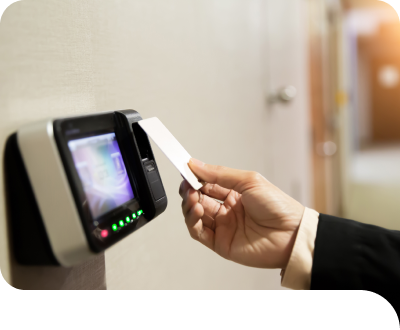- Home
- Voip Telephones System
Best VOIP Telephone Service Provider
An innovative wireless telephony services for your hotels.
Seamless Communication for Modern Hospitality
Elevate Guest Experiences with Cutting-Edge VOIP Telephony Solutions
Innovative Voice Services
It is evident that the wired phone network is one of the most used phone systems in the history of hotels. These conventional phones are not only costly, but they also need an extensive network of connecting wires to operate.


Cost-saving Effectual Services
VOIP telephone converts audio signals into digital signals transmitted through a broadband network. When it reaches the receiver, the digital signals are decoded into audio signals and communicate the message effectively.
Our Partners
Delivering Exceptional IT services Worldwide Over A Decade




Unify Your Hotel
In the hotel premises, the operating cycle runs based on active telephony services. Everyone is connected through phones, from guests to management, cleaners, chefs and guards.


Transforming Communities
From Virtual receptionists to support remote working through mobile apps, VOIP telephony has transformed communities digitally. Using a VOIP telephone, you can send virtual faxes from your phones and group calls with your friends and family.
Private Branch Exchange (PBX)
It is evident that the wired phone network is one of the most used phone systems in the history of hotels. These conventional phones are not only costly, but they also need an extensive network of connecting wires to operate.

IT Services for Hospitality

Access Control

Telephony Services

Paging System

CCTV

Low Voltage Cabling

IOT
We Keep Everything Connected
To sustain connectivity for your Residents, visitors, employees, and systems, NetraClouds Network Solutions install, maintain and take responsibility for your Hotel wired/wireless networks.
Strong & Secure Wi-Fi
Reliable internet access across your property for guests & visitors. Secured and strong connection.

Back-End System Setup
Configuring and maintaining the technological infrastructure that supports various aspects of a hotel's operations

Conferences Meetings & Gatherings
Ubiquitous coverage including small meeting halls, convention centers, rest areas, dining halls , and more.

